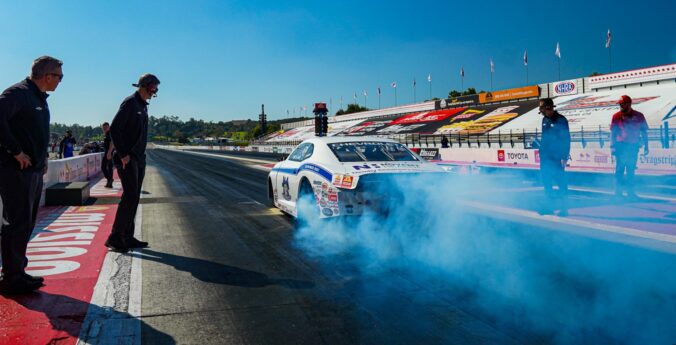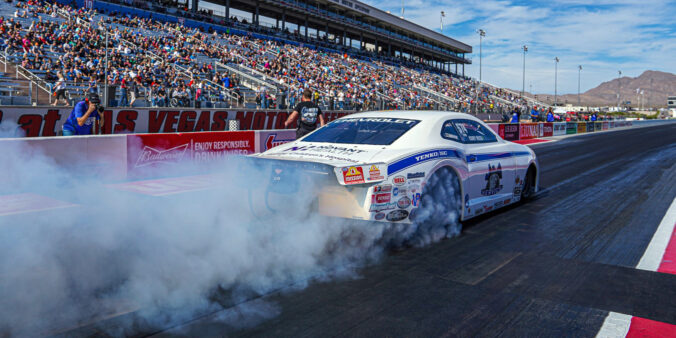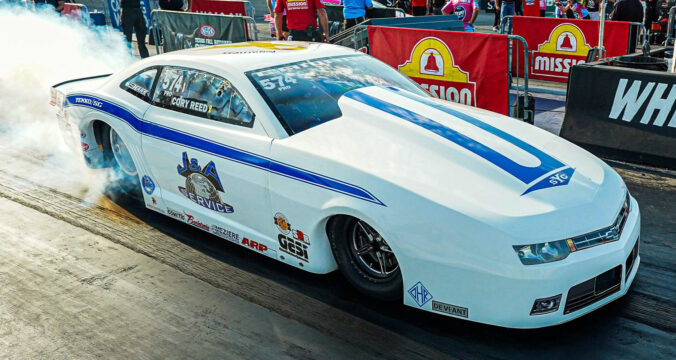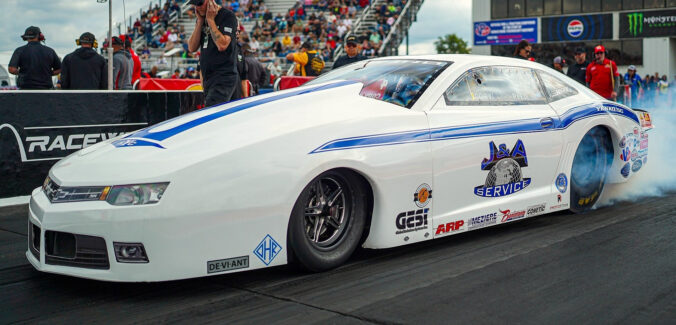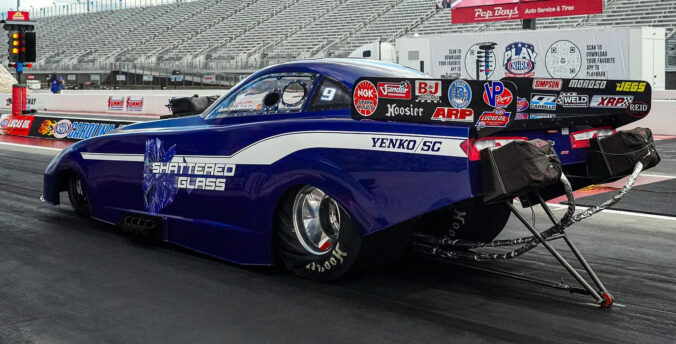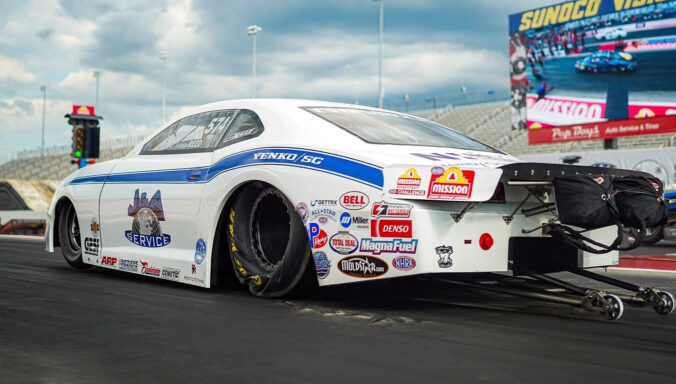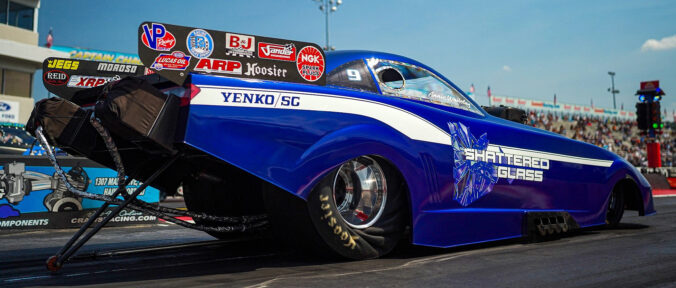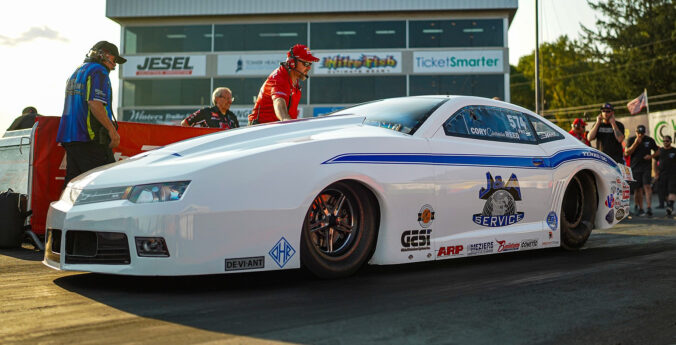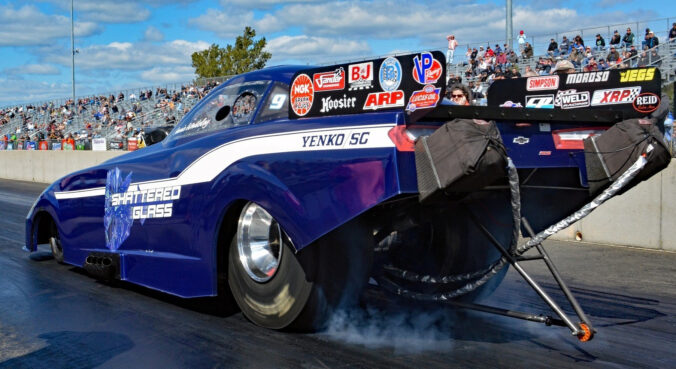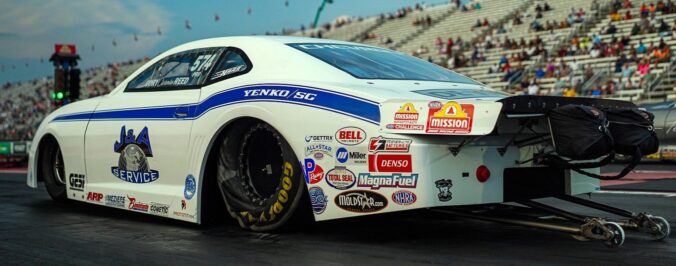Cory Reed could’ve decided the 2024 NHRA Pro Stock championship. He didn’t – nobody was keeping Greg Anderson from his sixth title, not even teammate Dallas Glenn – but Reed was right there, shift-for-shift in the second round of one of the truly memorable races of the legend’s long, prolific career.
What Reed did do was kill the Tree all weekend with one .020 light after another; he never had one not in the .020s. “I’m starting to realize that I don’t have to get jacked up or be in some certain state of mind to cut a light,” he said. “I just need to see the light, let go of the pedal, and – bam: .020 light.”
In qualifying, which was reduced from the usual four sessions to just two by persistent rain Friday afternoon, Reed had .022 and .023 reaction times. His K-B/Titan-powered Camaro performed well, too, propelling him to the middle of the field with an aggregate best of 6.534 at 210.01 mph for the No. 9 spot.
Reed faced the Elite team’s Jerry Don Tucker in the first round, and, as he has every time they’ve ever raced, beat him. He was out first with another .022 light and won what would have been an exceptionally close race, 6.558 to 6.563, by a comfortable margin, snapping a nasty streak of first-round losses and setting up a David vs. Goliath quarterfinal matchup with Anderson, who was chasing history.
“Since about St. Louis [Sept. 27-29], I’ve been figuring this deal out – where I have my foot on the [clutch] pedal, how hard I push it, the whole mental side of it,” Reed said. “Ever since then, I think I’ve found a groove.”
It carried into the quarterfinals, but Anderson was not to be denied. With a .026 light Reed was off like a shot, but Anderson erased the lead by 3rd gear and tied Low E.T. of the Meet to that point in a 6.492/211.63 to 6.564/209.56 decision.
“When we took off, we were close,” Reed said. “I couldn’t really tell who left first [he did, .026 to .030], but by about half-track, I could see his nose and knew he was going to outrun me. He deserves this. He had the best car all weekend, right from the start. No way was he going to slow down that time, and whatever he’s figured out with that car should trickle down to the rest of us next year.”

